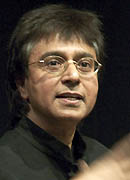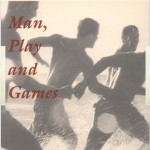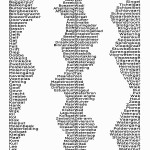Roger Caillois was a French avant-garde intellectual. In an appendix to ‘Man and the Sacred’…
Wovon man nicht sprechen kann …
 At the BAK symposium ‘The Former West’ he was one of the keynote speakers: Sarat Maharaj. Last thursday we studied an article he published in MaHKUzine, summer 2009. I just love getting together with all these bright minds and talking about ideas! The article deals with the subject of ‘method’: what method is to be used in visual art research that leads to knowledge production. This is becoming one of my favourite subjects & I have blogged about it before.
At the BAK symposium ‘The Former West’ he was one of the keynote speakers: Sarat Maharaj. Last thursday we studied an article he published in MaHKUzine, summer 2009. I just love getting together with all these bright minds and talking about ideas! The article deals with the subject of ‘method’: what method is to be used in visual art research that leads to knowledge production. This is becoming one of my favourite subjects & I have blogged about it before.
Maharaj describes the knowledge that visual art research generates as ‘ intimations of unknown elements, thinking probes, spasms of non-knowledge emerge and come into play. It is distinct from the circuits of know-how that run on clearly spelled out methodological steel tracks. It is the rather unpredictable surge and ebb of potentialities and propensities – the flux of no-how“. He argues in favor of a methodology that oscillates between ‘general” and ‘particular’.
I admire his rich, evocative language, his erudition and the way he uses his examples. To my exact mind, however, his writing is unsatisfying. Given questions, I start looking for answers. Which – forgive me if I am wrong – are all in the categorie of : “Wovon man nicht sprechen kann, darüber muss man schweigen” – “What we cannot speak of we must pass over in silence.“. That is Wittgenstein’s last line in Tractatus Logico-Philosophicus, a book written to identify the relationship between language and reality. Very apt!
Some quotes from the article are to be stored here for later usage:
page 8: “The query that crops up right away with the idea of ‘visual art as knowledge production’ is: “What sort of knowledge?” Hard on its heels “What marks out its difference, its otherness?” Should we not rather speak of non-knowledge – activity that is neither hard-nosed know-how nor its ostensible opposite, ignorance? The question is especially pertinent in today’s expanding knowledge economy that we should not only see as a ‘technological development’ but as an emerging overall condition of living that I prefer to speak of as the ‘grey-matter’ environs.”
That’s my ‘living in the mind – not in the body’ idea…..
page 11: “Henri Bergson sees such categories – verbs, substantives, adverbs – as brittle, arbitrary functions of the intellect-analytic. They rendered the ever-changing flow of time, experience and consciousness in terms of static representations, stills and freeze shots” .
That sums up language’s impotence as far as representing a stream of consciousness is concerned.
page 13: “The frenzy over method is perhaps not dissimilar to the moment in the ‘onwards march of method’ in philosophy of science in the heyday of Karl Popper. It provoked Feyerabends ‘Anti-Method’ – a call to resist ‘methodologization’ by taking heart from both an original scepticism and ‘creative muddle’ that attends scientific experiment and art practice.”
I promised Henk I’d read Feyerabend before continuing our discussion, and so I will.
| « Shattered silence at the Rijksacademy | <-- previous post | next post --> | Storing, retrieving, retaining…. » |
|---|







